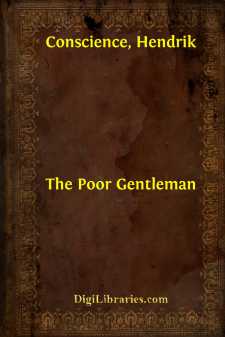Categories
- Antiques & Collectibles 13
- Architecture 36
- Art 48
- Bibles 22
- Biography & Autobiography 813
- Body, Mind & Spirit 142
- Business & Economics 28
- Children's Books 15
- Children's Fiction 12
- Computers 4
- Cooking 94
- Crafts & Hobbies 4
- Drama 346
- Education 46
- Family & Relationships 57
- Fiction 11828
- Games 19
- Gardening 17
- Health & Fitness 34
- History 1377
- House & Home 1
- Humor 147
- Juvenile Fiction 1873
- Juvenile Nonfiction 202
- Language Arts & Disciplines 88
- Law 16
- Literary Collections 686
- Literary Criticism 179
- Mathematics 13
- Medical 41
- Music 40
- Nature 179
- Non-Classifiable 1768
- Performing Arts 7
- Periodicals 1453
- Philosophy 64
- Photography 2
- Poetry 896
- Political Science 203
- Psychology 42
- Reference 154
- Religion 513
- Science 126
- Self-Help 84
- Social Science 81
- Sports & Recreation 34
- Study Aids 3
- Technology & Engineering 59
- Transportation 23
- Travel 463
- True Crime 29
The Poor Gentleman
Description:
Excerpt
CHAPTER I.
Near the end of July, 1842, an open calèche might have been seen rolling along one of the three highways that lead from the frontiers of Holland toward Antwerp. Although the vehicle had evidently been cleaned with the utmost care, every thing about it betokened decay. Its joints were open, discolored, and weather-beaten, and it swung from side to side on its springs like a rickety skeleton. Its patched leathers shone in the sunshine with the oil that had been used to freshen them, but the borrowed lustre could not hide the cracks and repairs with which they were defaced. The door-handles and other parts of the vehicle that were made of copper had been carefully polished, and the vestiges of silver-plating, still visible in the creases of the ornaments, denoted a former richness which had been almost entirely worn out by time and use.
The calèche was drawn by a stout, heavy horse, whose short and lumbering gait intimated very clearly that he was oftener employed in the plough and cart than in carrying his owner toward the capital.
A peasant-boy of seventeen or eighteen was perched on the driver's seat. He was in livery; a tarnished gold band adorned his hat, and brass buttons glistened on his coat; but the hat fell over his ears, and the coat was so large that the driver seemed lost in it as in a bag. The garments had been worn by many of the lackey's predecessors on the box, and, in a long series of years, had doubtless passed from coachman to coachman till they descended to their present possessor.
The only person in the vehicle was a man about fifty years old. He was unquestionably the master of both servant and cabriolet, for his look and deportment commanded respect and consideration. With head depressed and moody air, he sat motionless and dreamy in his seat till he heard the approach of other vehicles, when, suddenly lifting his eyes, he would salute the strangers graciously and then instantly relapse into his former attitude. A moment's glance at this person was sufficient to excite an interest in him. His face, though hard and wrinkled, was so regular and noble in its contour, his look so mild and yet so earnest and penetrating, his broad brow so clear and lofty, that the most careless observer could not doubt that he was endowed with the best qualities of human nature. Besides this, there were unquestionable indications that he had been a sufferer. If a simple glance at his features did not impress one with a conviction of this fact, it was confirmed by the fringe of silvery hair that straggled over his temples, and the sombre, melancholy fire that glimmered in his eyes like the last rays of expiring hope.
His dress was in perfect keeping with his physiognomy. It was of that neat and simple style which always characterizes a man of the world who is governed by refined and elegant tastes. His linen was spotlessly white, his cloth extremely fine, and his well-brushed hat shone smartly in the sunshine. Occasionally, as some one passed on the road, he might be seen to draw forth a handsome gold snuff-box and inhale a pinch with so graceful an air that an observer would be convinced he belonged to the highest classes of society....



